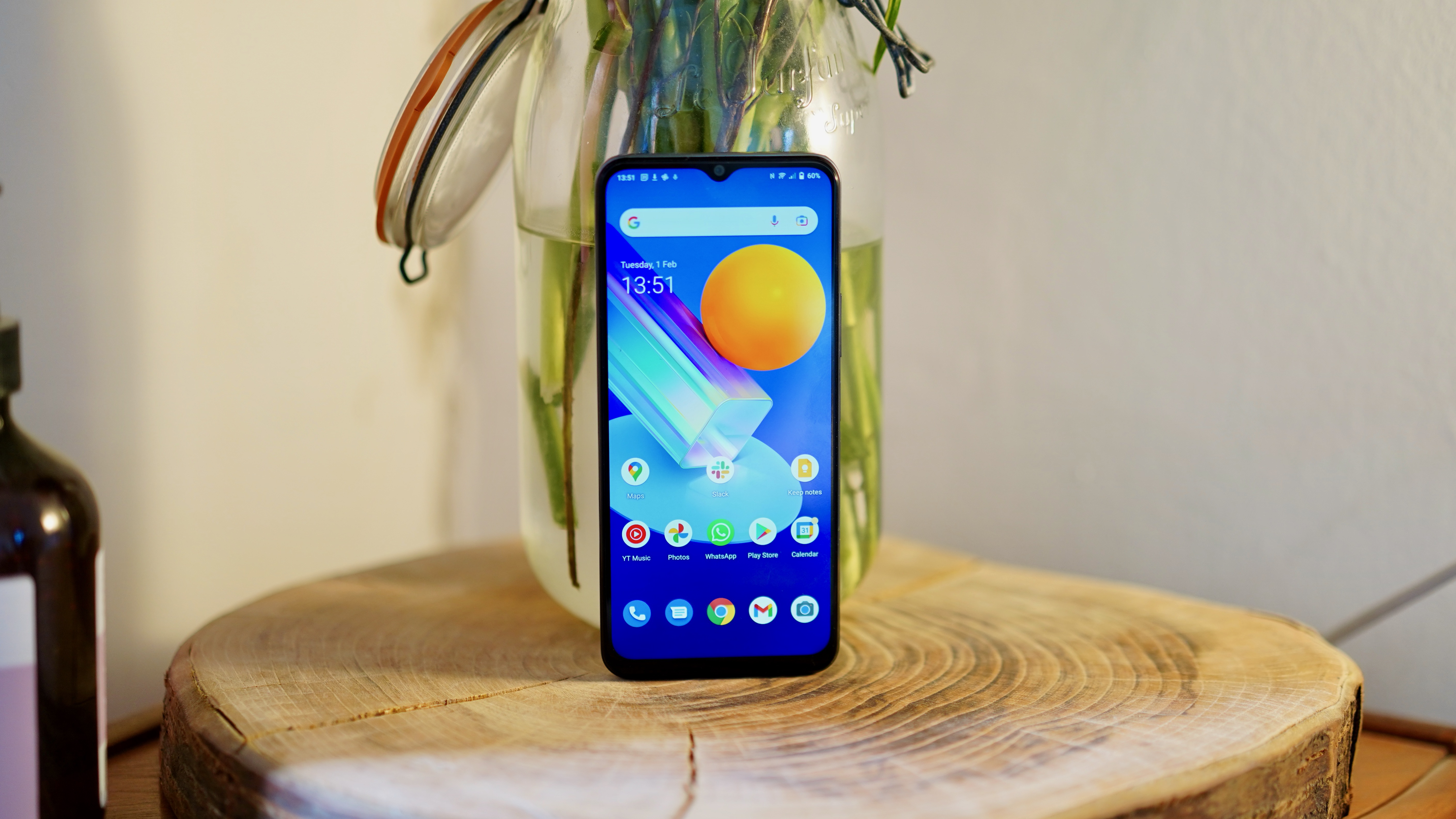TechRadar Verdict
The Vivo Y52 5G is yet another competent low-cost smartphone with a neat design, excellent stamina, and 5G connectivity. However, it wholly fails to stand out from a very samey crowd, and even falls behind in a couple of key areas. You’re better off with the Poco X3 NFC if 5G isn’t a concern, or the Realme 8 5G if it is.
Pros
- +
Decent, unassuming design
- +
Excellent two-day stamina
- +
Competent 48MP main camera
Cons
- -
Display only 60Hz
- -
Middling performance
- -
No ultra-wide camera
Why you can trust TechRadar
Two-minute review
The Vivo Y52 5G is a budget phone that doesn’t do anything fancy or out of the ordinary. It offers a solid smartphone experience for a low fee, with nothing to note in the way of bells and whistles.
Perhaps its most notable attribute is its tidy design, though even that doesn’t really stand out from rival efforts like the Realme 8 5G and the Redmi Note 10 5G.
In fact, it’s sorely lacking compared to those phones when it comes to its display, which is stuck with LCD panel technology and a modest 60Hz refresh rate. As a canvas for the usual content it’s perfectly decent, but we’ve come to expect the option of something a little smoother.
The Y52 5G’s performance is roughly equivalent to those aforementioned rivals, thanks to the same Dimensity 700 processor. Again, quiet competence is the name of the game here, though you wouldn’t want to make this your choice if you’re a committed gamer.
This general sense of uninspiring competence carries through to a solid 48MP camera, which can can get decent results in good lighting, but which lacks flexibility through the omission of a dedicated ultra-wide lens.
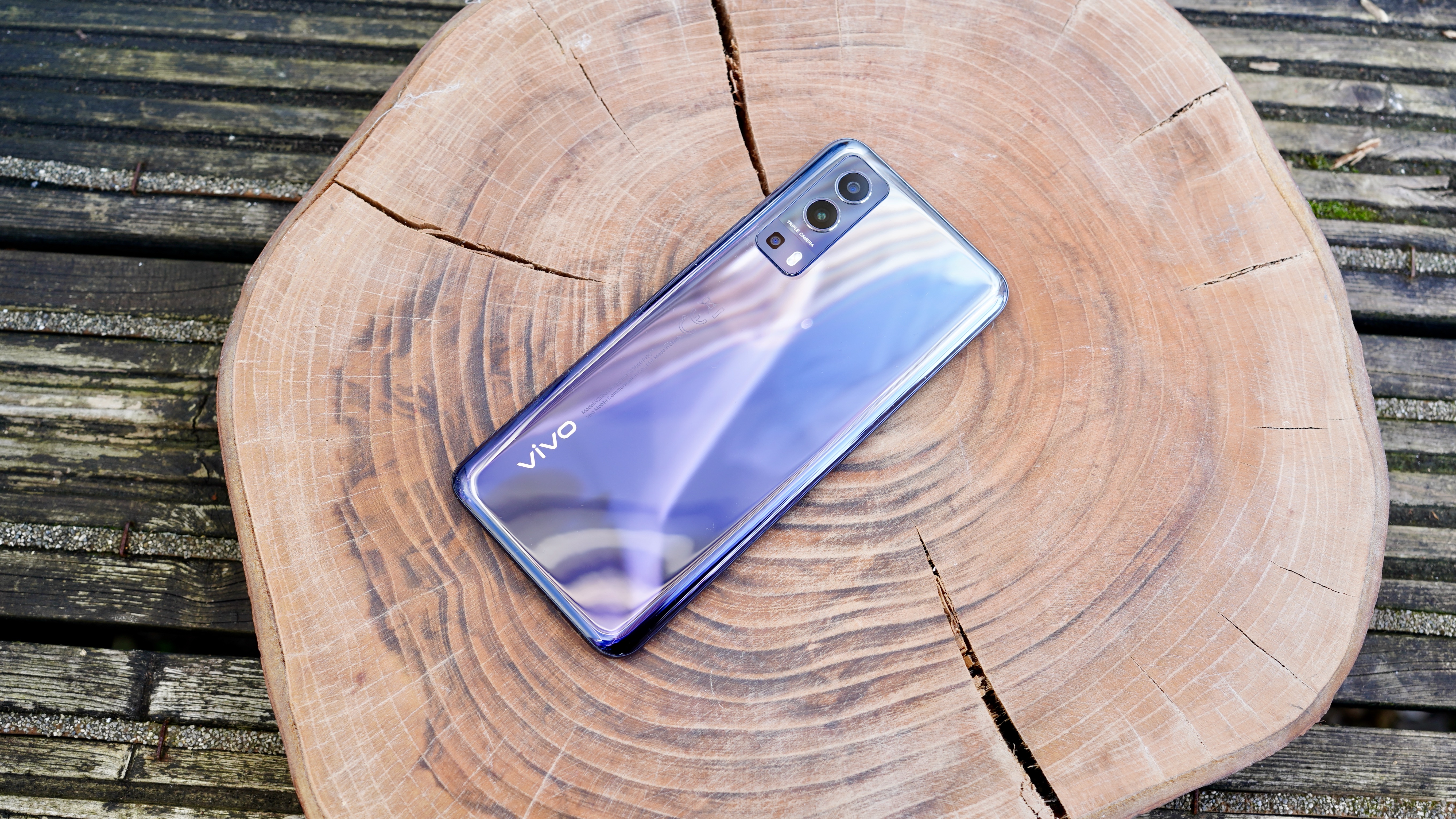
On the plus side, the Vivo Y52 5G’s battery life is excellent, with the potential for a full two days of moderate usage on a single charge. But even that is a fairly typical attribute among its peers.
All in all, you’ll get more highlights and excitement from something like the Poco X3 NFC, though not with the Vivo Y52 5G’s next-generation mobile network connectivity.
Even if the latter is a priority, however, there are 5G-ready rivals on the market that just offer a smidgen more pizazz for similar money.
Vivo Y52 5G price and availability
- Costs €229 in Europe (roughly $265 / £200)
- Costs AU$379 in Australia
- Exclusive to Virgin Mobile in the UK
While the Vivo Y52 5G initially launched in some territories in June 2021, it only arrived in the UK through Virgin Mobile UK in October, and it's not currently available in the US, though Australian buyers can find it for AU$379.
To that end, in the UK, it’s only available on contract with monthly costs starting from £14.50. That’s with no upfront fee, unlimited texts and minutes, and 2GB of data. You can find it on sale in European territories through Vivo’s Amazon account at an RRP of €229.
This does make it somewhat tricky to judge the Y52 5G’s SIM-free price. However, it works out to roughly $265 / £200.
It’s enough to tell us that the Vivo Y52 5G’s direct rivals are fellow ultra-affordable phones like the Poco X3 NFC, the Moto G50, and the Realme 8 5G.
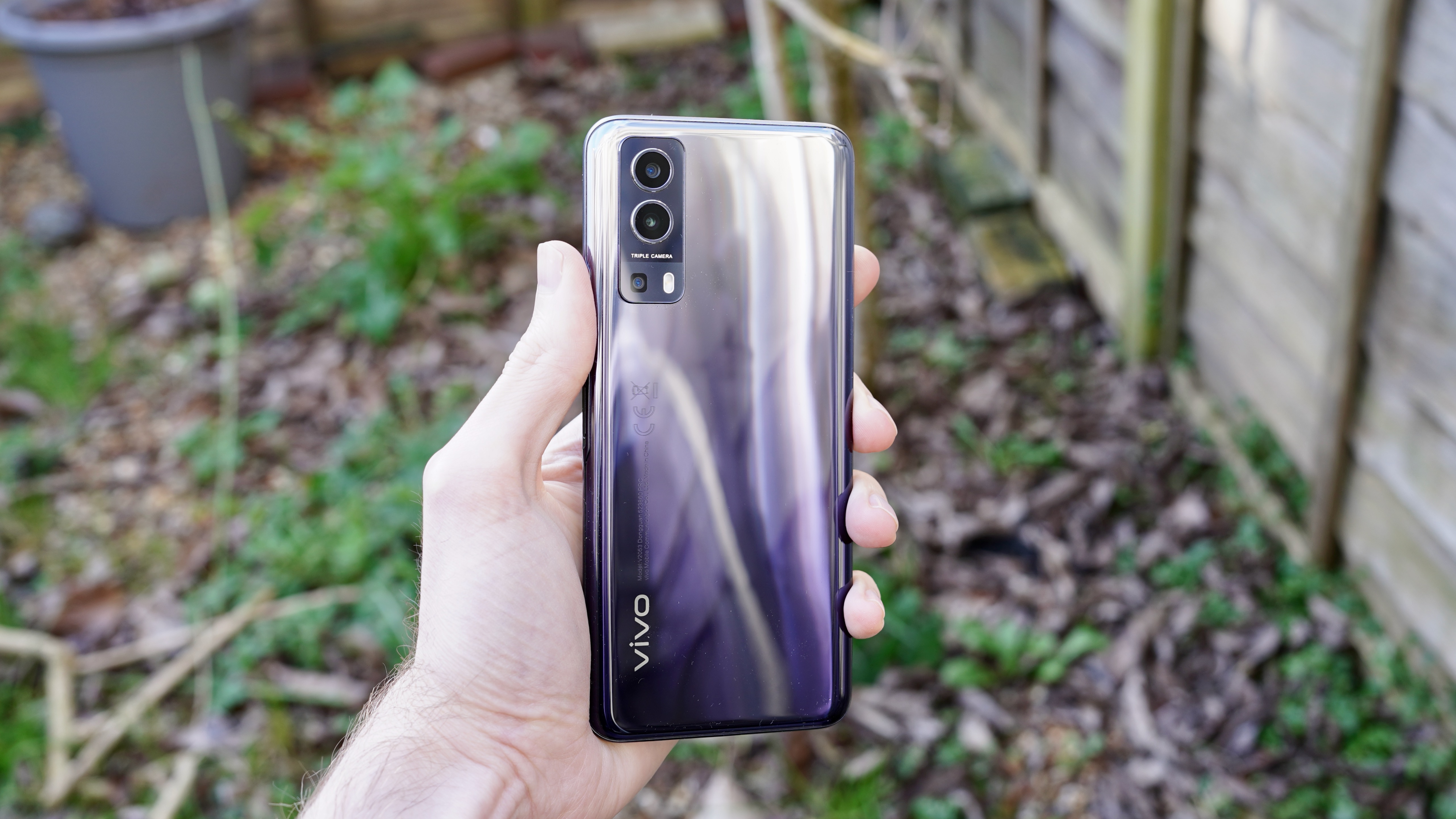
Design
- Vivo’s customary tidy design on show
- Reliable side-mounted fingerprint sensor
Vivo has made some of the more unassumingly stylish phones of recent years, though that’s largely near the top end of the market. Phones such as the Vivo X60 Pro have an expensively industrial look to them that many more high-profile rivals could learn from.
That look was reworked for the mid-range market in the Vivo V21 5G, but it was perhaps too much to ask for it to make its way to the £200(ish) category, where design budgets are even tighter.
To that end, the Vivo Y52 5G has a slightly generic look that most phones at this end of the market tend to suffer from. It could have come from the Realme or Oppo stables, which is perhaps unsurprising when you consider that all three manufacturers fall under the same parent company.
Its dimensions are similarly run-of-the-mill. At 164 x 75.3 x 8.5mm and 193g, it’s as easy to wield as any of its rivals, but it’s not what you’d call compact.
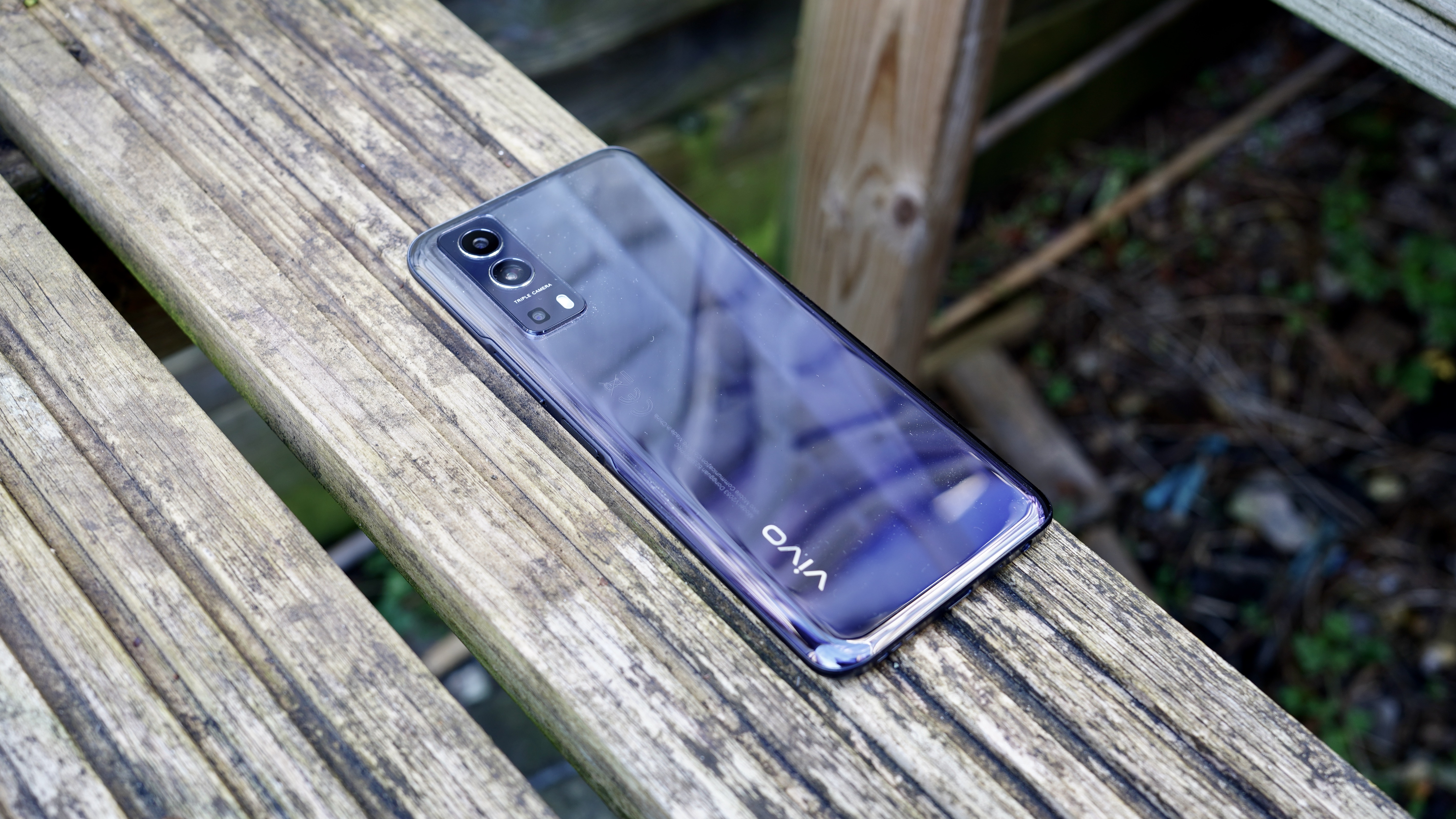
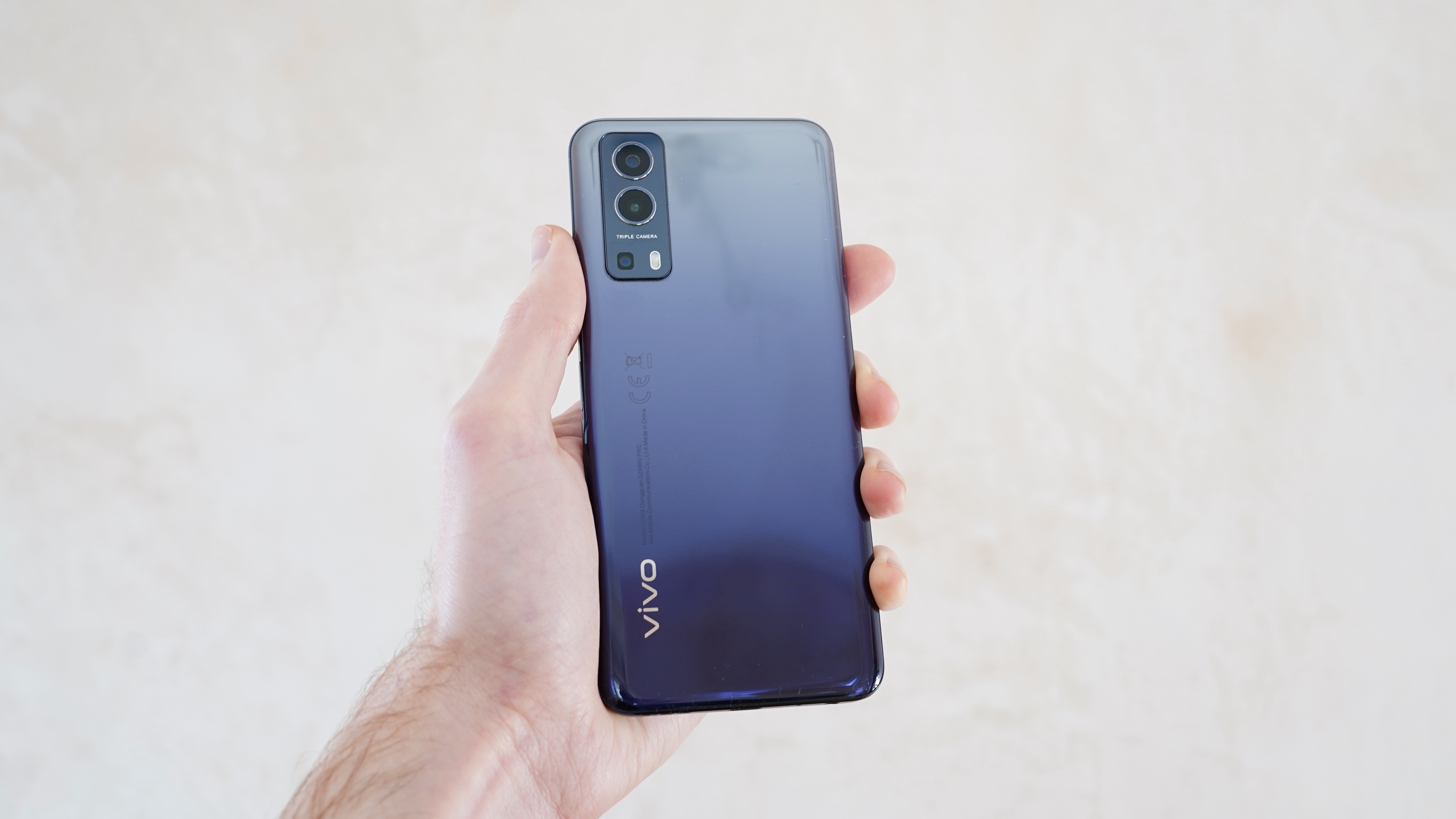
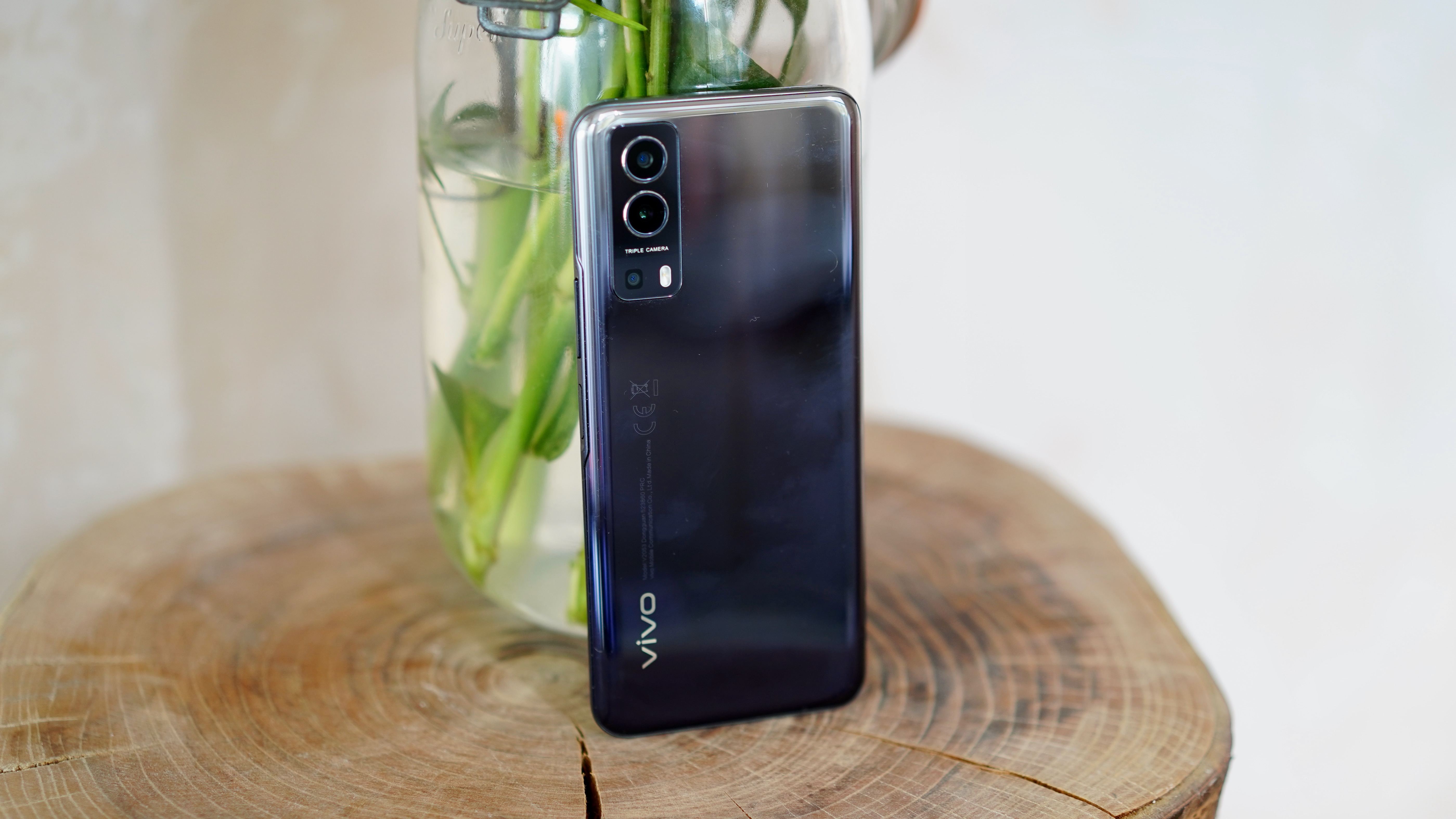
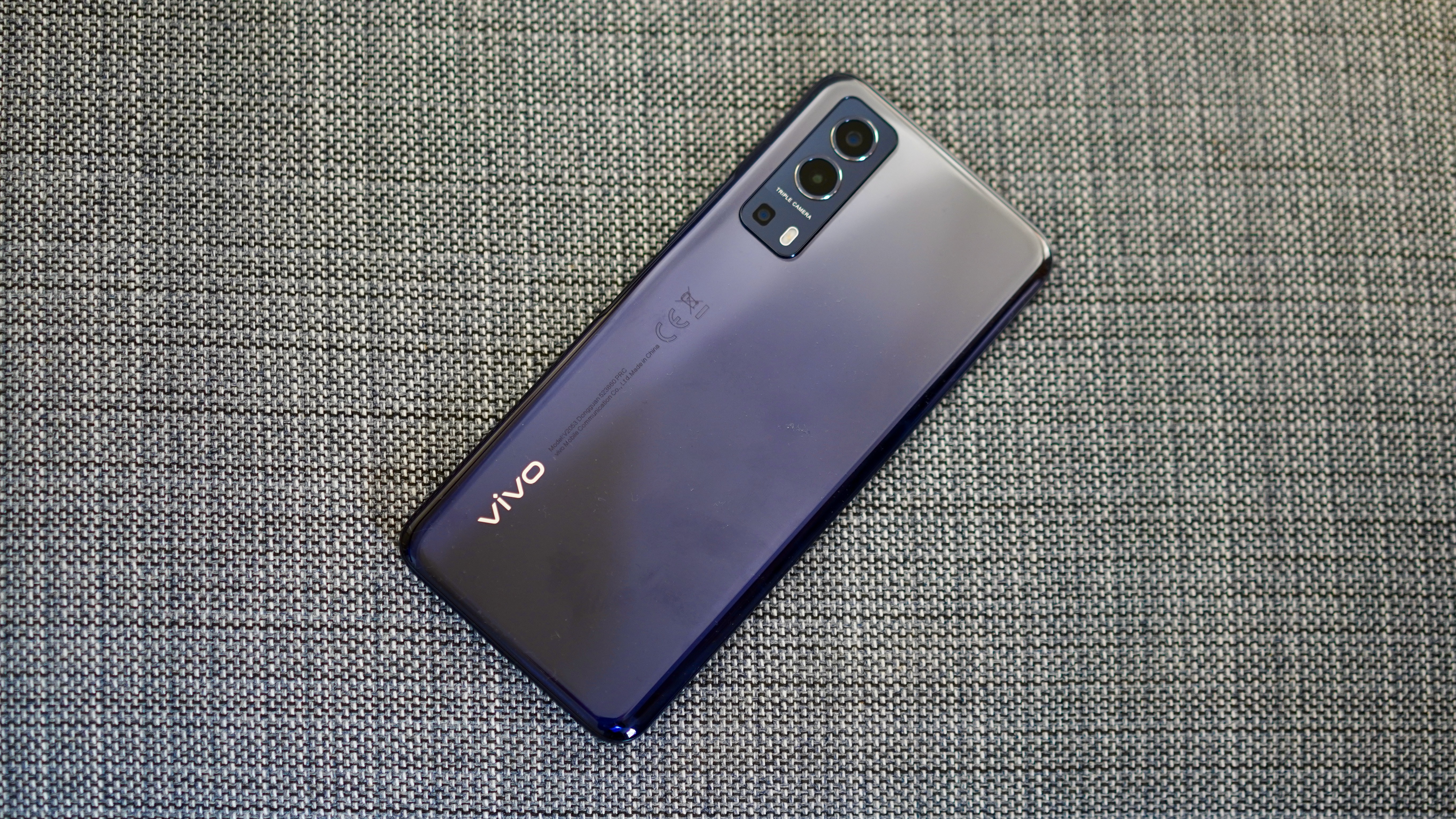
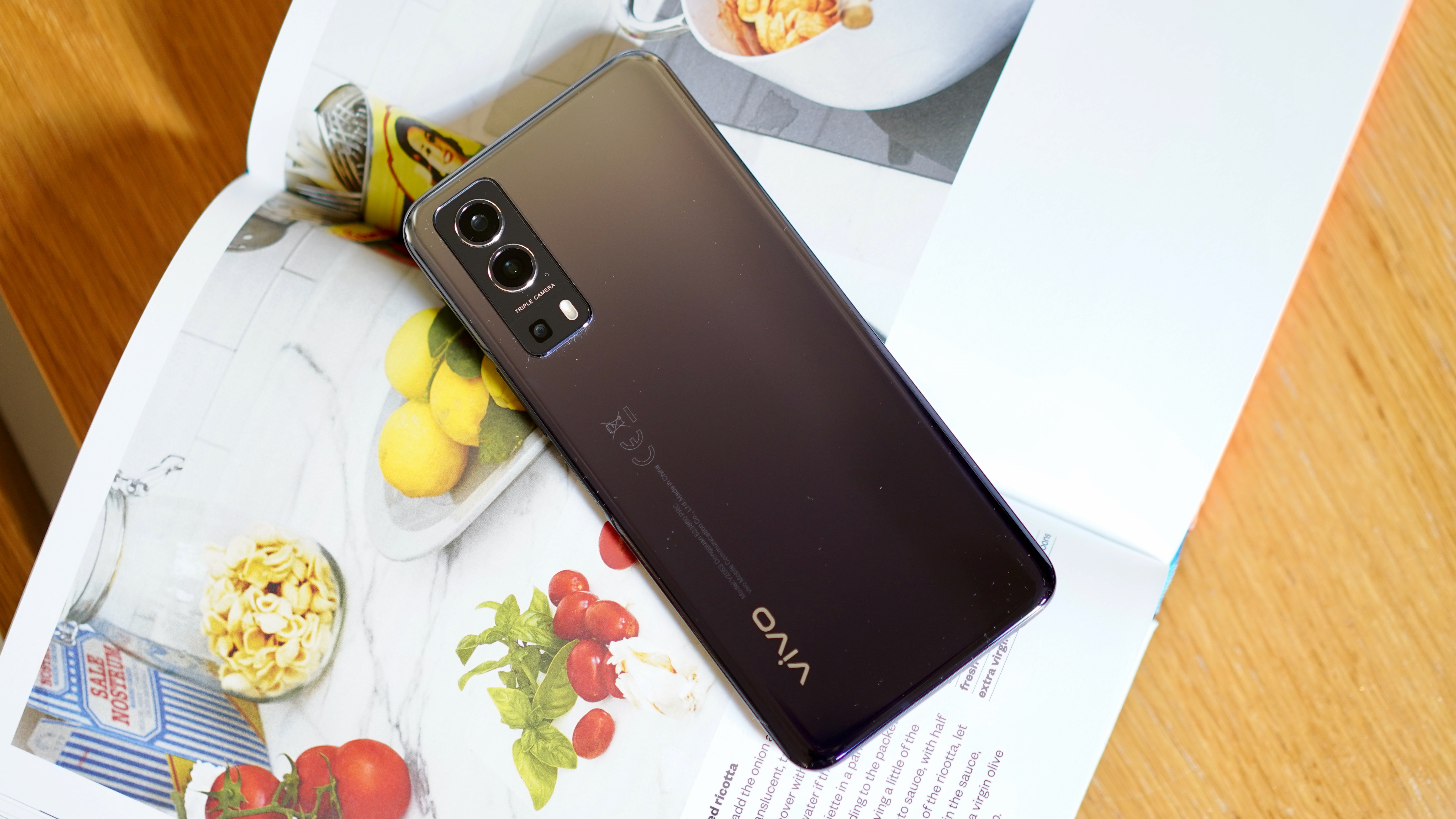
While the Y52 5G is made from plastic, the tolerances are nice and tight, and its body is refreshingly free of creaks. That’s really all you can ask for at this price.
There are a couple of thoughtful details here too. We like how the power and volume keys sit in a slight recess carved into the right-hand edge, and how that edge widens out ever so slightly.
The aforementioned power button houses a fingerprint sensor, and has been made agreeably large and flat to accommodate this vital function. It works very well too.
Also distinctive is the way that the top and bottom edges have slight creases in them. The bottom edge in particular houses a 3.5mm jack alongside a mono speaker and a USB-C port.
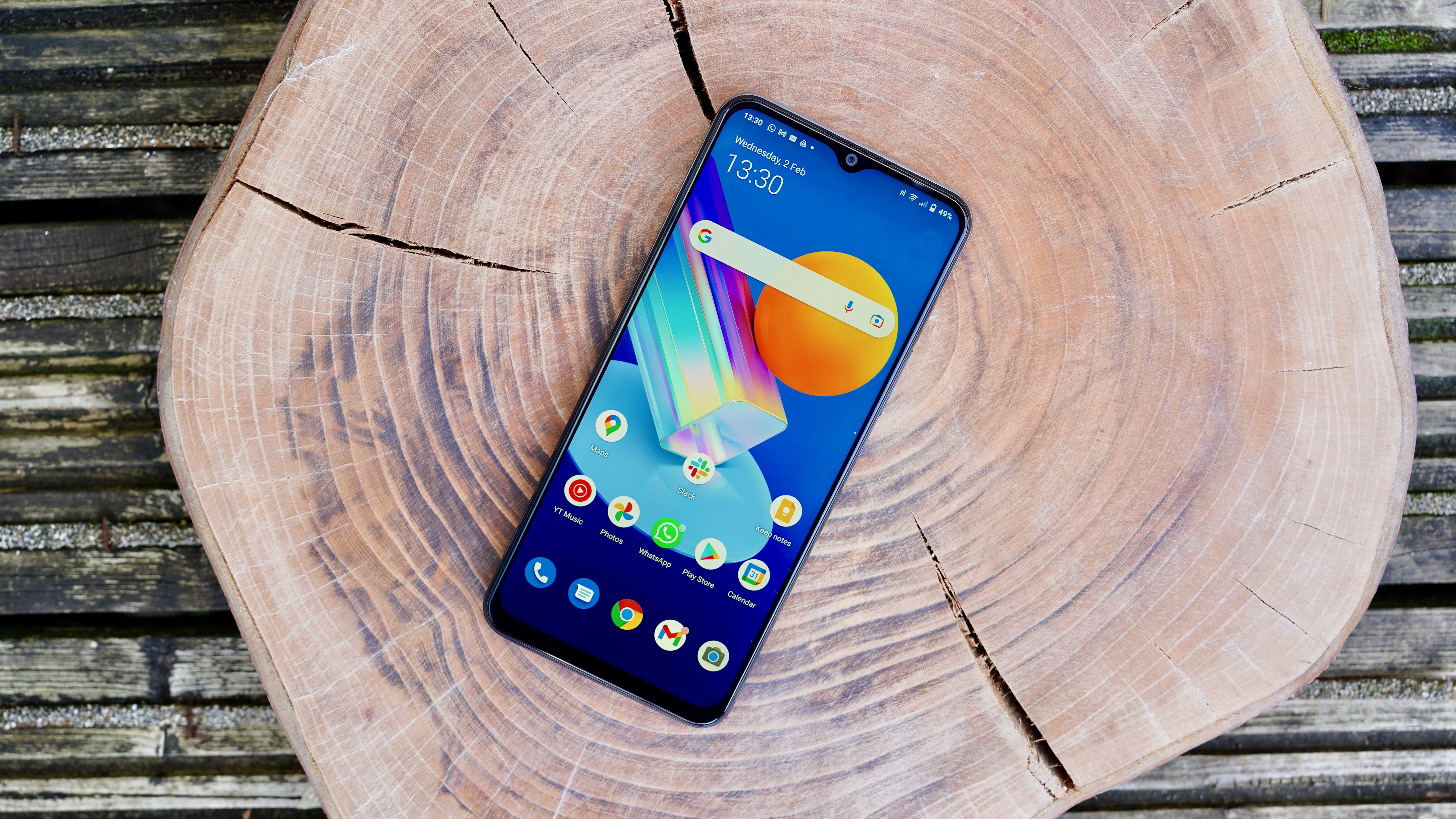
Display
- 6.58-inch LCD screen with 1080 x 2408 resolution
- Only 60Hz
The Vivo Y52 5G’s display is perhaps the biggest disappointment here. It’s a bog-standard LCD panel, and it only has a 60Hz refresh rate.
This is a bit of a downer, because it’s quite possible to get either an AMOLED panel (see the Moto G31) or more commonly a higher refresh rate at around this price. To get neither here means that the viewing experience falls a little flat.
On the positive side it’s plenty big enough at 6.58-inches, it packs a solid 1080 x 2408 (FHD+) resolution, and it’s reasonably bright and color accurate. We wouldn’t say that video content sings here, but it certainly appears passable.
Another thing that dates the Vivo Y52 5G somewhat is the provision of a teardrop notch. The likes of the Poco X3 NFC and the Realme 8 5G give you a more premium-looking punch-hole equivalent.
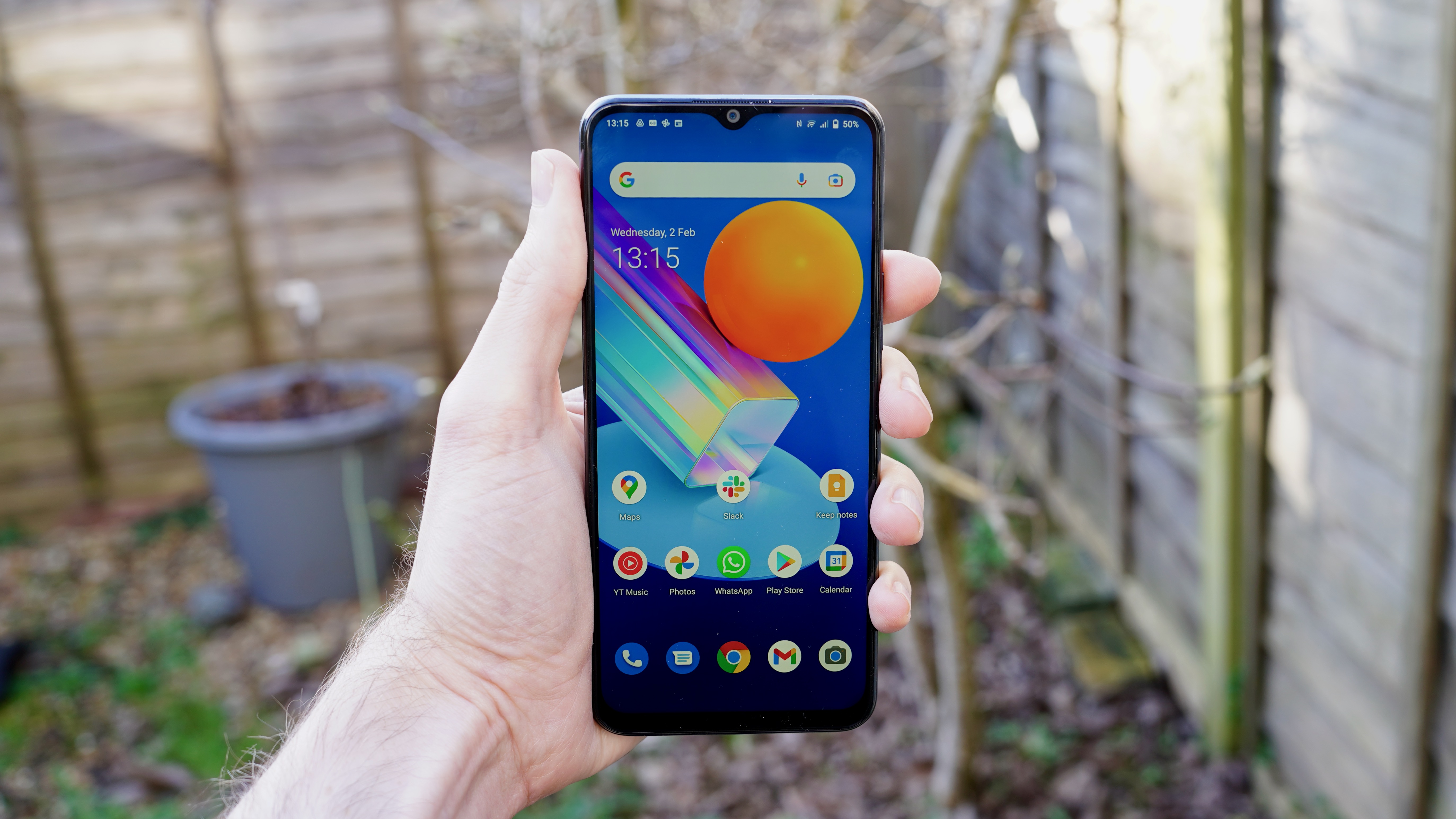
Cameras
- 48MP main camera gets decent results in good lighting
- No ultra-wide
Unfortunately, the Vivo Y52 5G rather underwhelms with its basic camera provision, too. While a 48MP wide sensor and an f/1.8 aperture are nothing to be sniffed at, the lack of a dedicated ultra-wide is somewhat disappointing.
It’s not unheard of at this price point, however – the Realme 8 5G has a similar provision. Without wishing to hark on a point, however, the Poco X3 NFC does give you a dedicated ultra-wide lens.
There’s no telephoto lens here either, but it would have been unusual if there had been. Zoom potential is always the first thing to be sacrificed in the name of cost-cutting.
We could have done without the 2MP macro and depth sensors, but such spec-padding is another common feature of budget phones. To highlight the Vivo Y52 5G for special criticism would be unfair, so we’ll just say that they’re as pointless here as with any other similar examples.
Still, that 48MP main sensor captures images of acceptable quality, provided there’s plenty of light. It’s certainly up to the task of taking shots that are worthy of sharing on your chosen social network, which is what most people will be after.
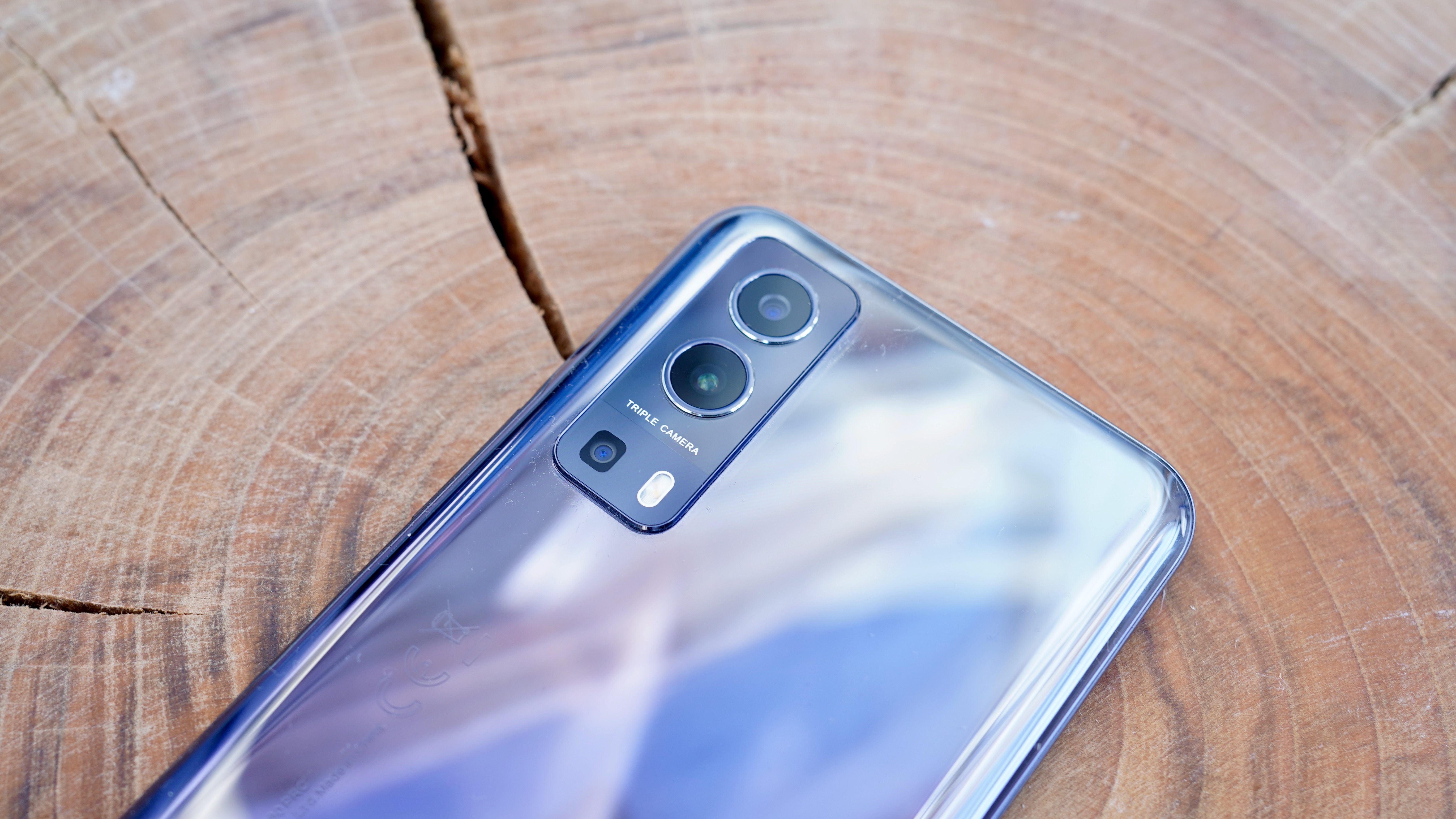
Shots are generally well exposed and reasonably balanced, with a natural tone that more or less represents what was taken. You can’t say that for every cheap phone camera.
Outside of taking standard 1x point-and-shoot shots in good lighting, however, things suffer. By necessity, the 2x zoom mode merely crops in on a standard image, resulting in shots that lack detail – though at least the tone is consistent.
There’s a night mode here, but a relatively small sensor and a lack of optical image stabilization results in blurry, grainy shots when the light drops beyond a certain point.
Meanwhile the 8MP selfie camera is really nothing to write home about, washing out skin tones and exhibiting disconcerting levels of grain in background skies.
None of which is any great surprise in a budget phone. The criticisms mentioned above are present, to one degree or another, in every budget phone on the market.
But if you’re expecting some of Vivo’s camera expertise to have made its way down to its cheapest phones, you’re in for a disappointment.
Camera samples










Performance and specs
- MediaTek MT6833 Dimensity 700 5G has decent CPU but mediocre GPU
- 4GB of RAM with some aggressive memory management
The Vivo Y52 5G runs on a MediaTek MT6833 Dimensity 700 5G, which is built using a 7nm process. This is the same chip that powers the Xiaomi Redmi Note 10 5G and the Realme 8 5G.
Like the Redmi Note 10 5G, this humble chip is paired with a mere 4GB of RAM, which is about as low as we’d recommend going with an Android phone.
As with those two budget rivals, the Vivo Y52 5G is moderately capable in the CPU stakes, but less so on the GPU front. On the plus side, those other handsets have to drive 90Hz displays, while the Y52 5G uses a more frugal 60Hz screen.
The Y52 5G sails through web browsing and messaging tasks without a hitch, and the phone unlocks with just a brief pause. But it’s not well equipped for high-end gaming, even though it’ll run PUBG Mobile and Genshin Impact at an acceptable frame rate. The former runs on HD/High settings with Low textures by default.
Unsurprisingly, an average Geekbench 5 multi-core score of 1,718 puts the phone in the same ballpark as the Redmi Note 10 5G (1,677) and the Realme 8 5G (1,765).
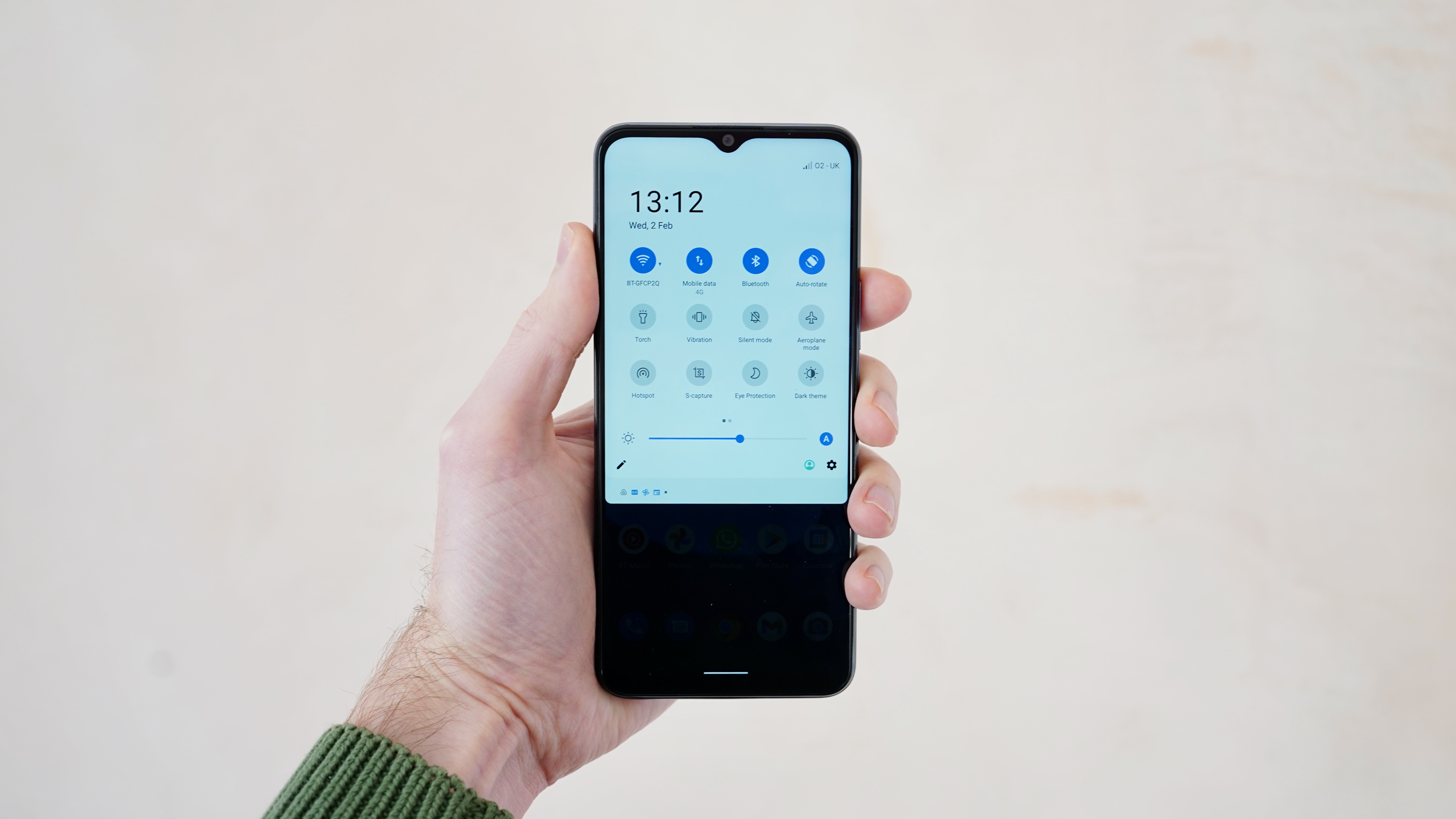
It’s in the GPU stakes that the Dimensity 700 5G can’t quite keep up with more mainstream Qualcomm equivalents. A 3DMark Sling Shot Extreme score of 2,425 falls short of the Poco X3 NFC and its Snapdragon 732G, which scored 2,622.
In terms of storage, 128GB is a decent amount, though it’s far from unusual to find in a budget phone by this point.
We observed some annoyingly aggressive memory management with the Y52 5G. When flitting from the Guardian news app to WhatsApp and back again, the phone didn’t maintain the story we were reading, but reset to the main page.
Whether this is an issue with Vivo’s Funtouch UI, an app bug, or the aforementioned RAM limitations, we’re not sure.
Otherwise, Funtouch 11.1 is a relatively light take on Android 11. It doesn’t lay on too much bloatware – at least in this European mode – with just a smattering of functional home-brewed apps and several mainstream third-party apps (Facebook, TikTok, and Booking.com) pre-installed as standard.
It’s quite similar to Oppo’s ColorOS and Xiaomi’s MIUI, all things considered. In other words, it’s neither a reason to buy the Vivo Y52 5G, nor a reason to remove it from your consideration.
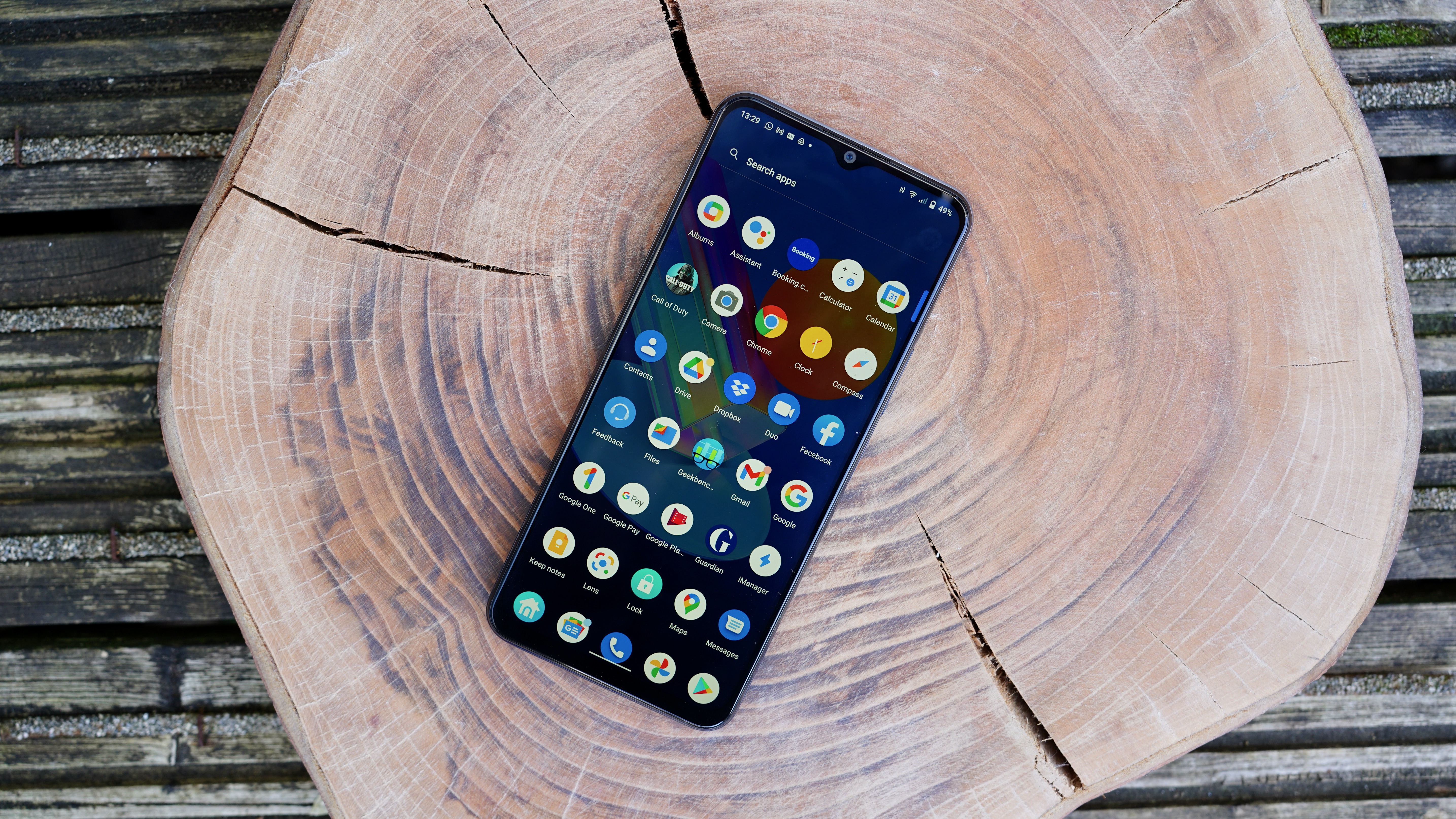
Battery life
- 5,000mAh battery good for two days moderate usage
- 18W charger bundled in
The Vivo Y52 5G isn’t lacking in the stamina stakes, with a healthy 5,000mAh cell matching that of the Redmi Note 10 5G and the Realme 8 5G, though it does drop fractionally short of the 5,160mAh Poco X3 NFC.
Of course, the Vivo Y52 5G doesn’t have a 90 or 120Hz display to drive, so it’s less power hungry than any of those phones.
Sure enough, the phone is good for the long haul. After a full 24 hours of moderate usage and four hours of screen-on time, which entailed lots of web browsing, news app reading, frequent Nest app usage, and plenty of WhatsApp messaging, we were left with around 65% left in the tank.
This means you can comfortably get to that magic two-day mark, provided you’re not a power user or a serious gamer. And if you’re either of those two things, you’re probably shopping at the wrong end of the market.
In our regular TechRadar battery test, which involves running a 90-minute 720p looping video with the screen brightness set to max, the Vivo Y52 5G lost 10% of a full charge. That’s the same as the Redmi Note 10 5G, and is way better than the Poco X3 NFC (which lost 15% at 60Hz and 17% at 120Hz).
Vivo bundles in an 18W charger, which is the same as the Redmi Note 10 5G and the Realme 8 5G, but less than the 33W brick supplied with the Poco X3 NFC.
Should you buy the Vivo Y52 5G?
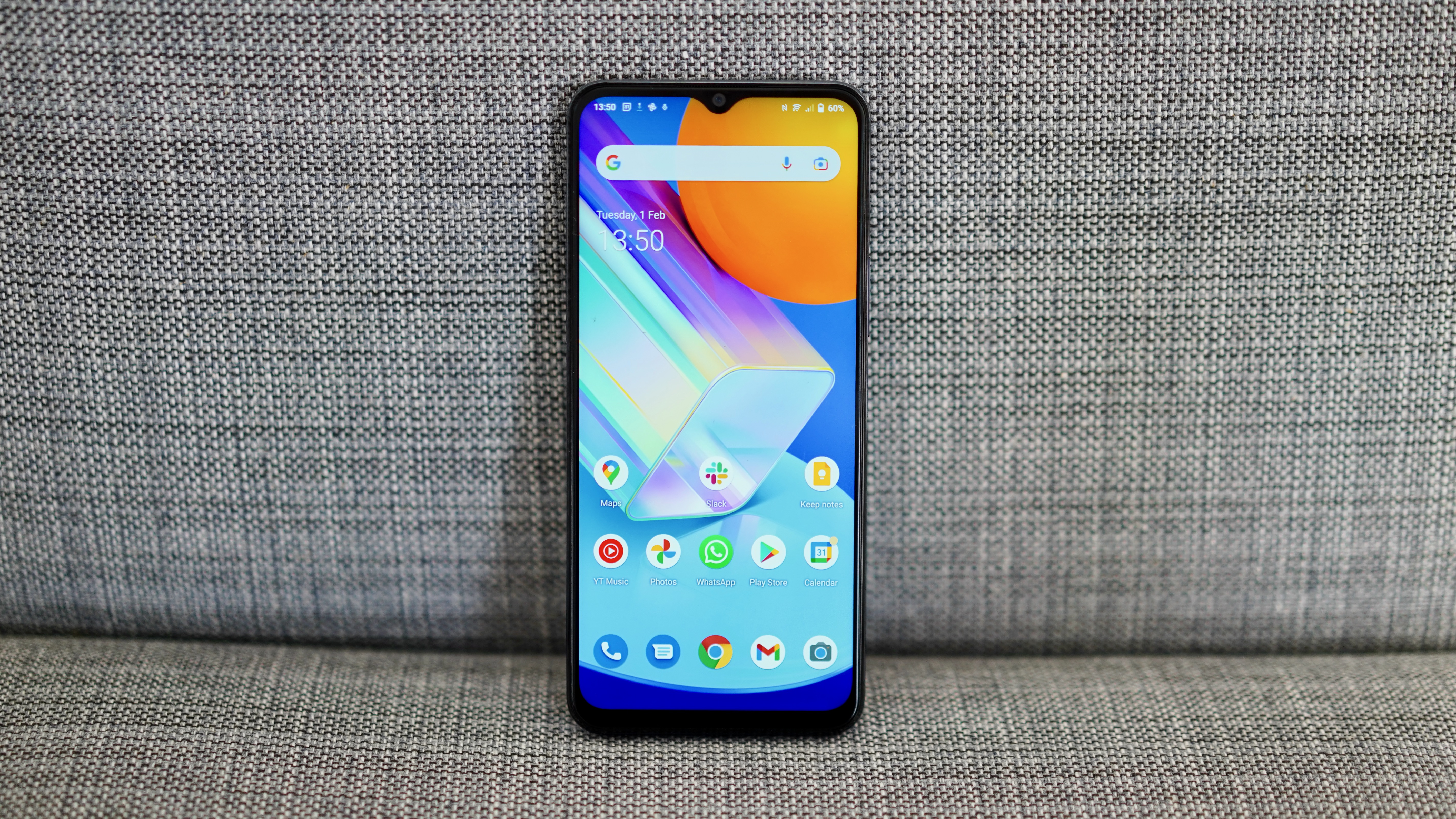
Buy it if...
You’re after a cheap, solid phone with no bells or whistles
The Vivo Y52 5G has almost no stand-out features, other than a decent design. If you’re just after a well-built, competent phone for a low price, it’ll suit you fine.
Stamina is your main priority
With a large battery and an efficient display, stamina was clearly Vivo’s priority here. The Y52 5G might not be the slickest operator, but it’ll get you through two days of moderate usage with relative ease.
You want 5G on a budget
The Vivo Y52 5G isn’t unique for offering this, but it does supply 5G connectivity for a low price. If next-gen network speeds are important to you, they’re accessible through this budget phone.
Don't buy it if...
A decent screen is a priority
The Vivo Y52 5G’s display is far from bad, but it fails to excel compared to its peers. With no OLED for punchy colors, and no higher refresh rate, it really is as bog-standard as you can get.
You’re a mobile gamer
The Y52 5G utilizes a Dimensity 700 chipset, which is fine for general tasks. However, its GPU is not a strong suit, and while it’ll run high-end games competently, you can do better for the money.
You want a flexible camera system
With no ultra-wide and no telephoto, the Vivo Y52 5G forces you to take shots from a fixed 1x distance. Its night mode is nothing to write home about, either.
First reviewed: February 2022
